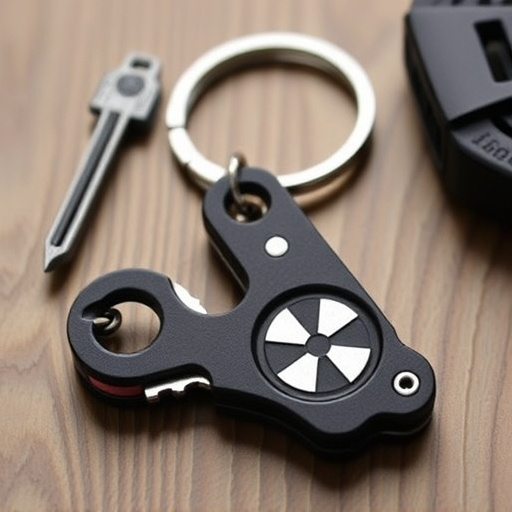Before carrying tactical keychains for self-defense, research state laws as regulations vary widely. Understand open/concealed carry rules, size restrictions, and permit requirements to ensure legal compliance and personal safety with tactical keychain self-defense tools.
“In today’s unpredictable world, the concept of self-defense has evolved beyond physical training. The tactical keychain emerges as a compact yet powerful self-defense tool, blending functionality with portability. This article delves into the intricate web of defensive keychain legal carry guidelines across states. From understanding state laws on these versatile devices to exploring tactical models and their legal carrying limits, we navigate the essential aspects of self-defense rights. Empower yourself with knowledge about these discrete yet effective self-defense tools.”
- Understanding State Laws on Defensive Keychains
- Tactical Keychain: Legal Carrying Limits & Exemptions
- Self-Defense Rights: Navigating Legal Carry Guidelines
Understanding State Laws on Defensive Keychains
Before carrying a tactical keychain as a self-defense tool, it’s crucial to understand your state’s specific laws on defensive weapons. Each state has its own regulations regarding what constitutes legal self-defense and the permissibility of certain defense tools like keychains. Some states allow for open carry of self-defense devices, while others restrict them to concealed carry with a permit.
Researching these guidelines is essential to ensure you’re complying with local laws. Many states have specific requirements for the size, shape, and functionality of defensive tools, as well as restrictions on who can legally possess them. Being informed about your rights and responsibilities under state law will help you make an informed decision regarding the carrying of a tactical keychain for self-defense purposes.
Tactical Keychain: Legal Carrying Limits & Exemptions
In many jurisdictions, the legal status of carrying tactical keychains as self-defense tools is a nuanced topic, with specific guidelines and exemptions. While some states allow for open carry of such devices, others have restrictions in place to maintain public safety. It’s crucial to understand that even within these limitations, there can be exceptions for certain professions or individuals with special permits. For instance, law enforcement officers often enjoy broader rights regarding self-defense tools, including tactical keychains.
When it comes to tactical keychains, knowledge of local laws is paramount. Some states might permit their carry in certain situations, such as when traveling between locations or while engaged in specific activities like hunting or camping. However, open carry may be restricted or prohibited in urban areas due to heightened security concerns. Individuals looking to legally carry tactical keychains as self-defense tools should consult their state’s specific legislation and, if necessary, seek advice from legal professionals to ensure compliance.
Self-Defense Rights: Navigating Legal Carry Guidelines
In many states, individuals have the right to carry tactical keychain self-defense tools for personal safety and protection. However, understanding the legal carry guidelines is crucial before exercising this right. Navigating these regulations can seem like a labyrinth, but it’s essential to ensure compliance to avoid legal repercussions.
The legality of carrying self-defense tools varies based on state laws, which can differ significantly. Some states allow open carry with minimal restrictions, while others require permits or mandate concealed carry with specific size and type limitations. Individuals should familiarize themselves with their state’s specific regulations, considering factors like the type of tactical keychain self-defense tool, capacity, and potential hidden carry requirements. Staying informed and adhering to these guidelines is vital for maintaining personal safety and legal integrity.
When considering the legal carry of tactical keychains as self-defense tools, understanding your state’s guidelines is paramount. While these compact and versatile devices offer enhanced protection in various situations, adhering to local laws ensures you remain on the right side of the law. By staying informed about defensive keychain legal carry guidelines, you can confidently exercise your self-defense rights while navigating the complexities of different state regulations.
